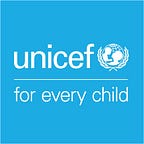8 December 2017
Communities ending AIDS
Through the involvement of communities, a vast majority of pregnant women living with HIV are on lifelong treatment.
With the support of the governments of Norway and Sweden, UNICEF began an initiative in December 2012 to eliminate mother to child transmission of HIV throughout hundreds of communities across Cote d’Ivoire, Democratic Republic of Congo, Malawi and Uganda, improving access to antiretroviral treatment for pregnant women.
On the banks of the Luapula River in the rural community of Kasenga, one of the most significant hurdles for HIV positive women is the stigma — many still associate the virus with sex work. Greater awareness and understating of HIV has been vital to ensuring better access to lifesaving treatment.
One aspect of the initiative has been to encourage women with HIV to share their personal experience of living with the virus and encourage other women to be tested and seek treatment. At the Kaboko Clinic in Kasenga, a group of expectant mothers attend a health talk by a peer educator.
(Right) Wando Kone is a community health worker in Bouake, Cote d’Ivoire where she goes door to door to help initiate and retain women in care and to raise awareness on how to live healthy lives. Community health workers like Wando are at the centre of success in bringing women into treatment and testing their partners.
Regular meetings that bring leaders together to discuss progress and barriers to HIV testing and treatment proved to be a valuable way to solve challenges and overcome obstacles. In Malawi, (centre) the Kakhome village headman presents his ideas after reviewing the latest data.
Involving partners and fathers have helped improve outcomes for everyone. (Left) Gordon Laimoni, a male champion in Malawi, advises Friday Mkuzi, husband and father, to take his family for HIV testing.
A mobile phone to follow up with patients and a bicycle to make home visits have made the difference between life and death. Bizwick Kazembe is a health worker at the Kangoma Health Centre in Malawi where he follows up with patients in person if they miss an appointment.
Two girls play at dusk in Kasenga, where 100 per cent of pregnant women now undergo HIV testing. All of the countries participating in the project saw a significant increase of pregnant women living with HIV on treatment, saving lives of women and their children.
